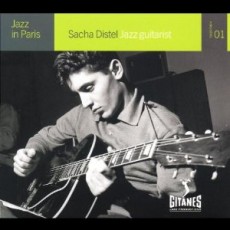
Daily Dose Of Jazz…
Sacha Distel: The Jazz Guitarist Who Became France’s Crooner to the World
Sacha Distel was born on January 29, 1933, in Paris, France, and started out like many young musicians, plinking away at the piano. But the guitar called to him with a voice he couldn’t ignore, and once he made the switch, there was no turning back.
A Life-Changing Night in 1948
When Sacha was just fifteen, his uncle Ray Ventura, founder of a jazz orchestra that had settled in Paris after the war—invited him to witness something extraordinary: Dizzy Gillespie performing with Ventura’s ensemble. For a teenage guitarist still finding his voice, hearing Gillespie’s revolutionary bebop trumpet in person was like being struck by lightning. That single concert ignited a passion that would define the next decade of Distel’s life.
Becoming a Jazz Leader
The experience with Gillespie split Ventura’s musical circle into two rival camps: Guy Wormser’s New Orleans traditionalists and a group of cool jazz and bebop enthusiasts led by the young Distel. Together with saxophonist Hubert Damisch, Sacha founded a band that quickly established him among Paris’s jazz elite.
Their talent was undeniable. At the prestigious Coliseum’s Night of Jazz, Distel’s ensemble won the Meilleur Petit Orchestre Moderne (Best Modern Small Orchestra) award, while both Damisch and Distel individually took home prizes as outstanding musicians on the same evening. Not bad for a teenager who’d only discovered jazz a few years earlier.
Crossing the Atlantic
Distel’s guitar work caught international attention. He worked alongside Dizzy Gillespie and collaborated with Tony Bennett, who would popularize Distel’s composition La Belle Vie, better known in English as The Good Life, turning it into a timeless standard that’s been recorded hundreds of times since.
By the late 1950s, Distel had appeared on The Ed Sullivan Show, introducing American audiences to his sophisticated musicianship and undeniable charisma. But something was shifting—the handsome young guitarist was also discovering he had a voice that audiences loved.
From Jazz Guitarist to International Star
What followed was a remarkable transformation. Distel evolved from serious jazz musician into one of France’s most beloved crooners and entertainers. He hosted his own variety show on French television, becoming a household name throughout the Francophone world and gaining popularity far beyond France’s borders.
His star power was genuine: he performed for the Queen Mother’s 80th birthday, played the manipulative lawyer Billy Flynn in the London production of Chicago, and famously dated Brigitte Bardot for a year. He later married Olympic skier Francine Breaud, settling into a life that balanced artistic achievement with genuine glamour.
Hits That Crossed Borders
Distel scored major hits with his cover of the Oscar-winning Raindrops Keep Fallin’ on My Head, the playful Scoubidou, which became something of a European phenomenon, and of course his own composition “The Good Life”, a song that perfectly captured the sophisticated, optimistic spirit of its composer.
A Bittersweet Ending
After a long illness, vocalist and guitarist Sacha Distel passed away on July 22, 2004, at age 71, in Rayol-Canadel, France, a small commune on the Mediterranean coast, far from the Parisian jazz clubs where he’d started and the international stages where he’d triumphed.
Two Careers, One Artist
Sacha Distel’s story is fascinating because it represents something rare: a serious jazz musician who successfully transitioned into mainstream entertainment without completely abandoning his roots. The guitarist who studied bebop never entirely disappeared, even when the crooner took center stage.
His composition The Good Life might be his most enduring legacy, a song that captures both his jazz sophistication and his gift for melody that could reach beyond the jazz cognoscenti to touch anyone who’d ever dreamed of la belle vie.
From a teenage guitar student mesmerized by Dizzy Gillespie to an international entertainer who made queens and common audiences alike smile, Sacha Distel lived the good life he sang about and shared it generously with the world.
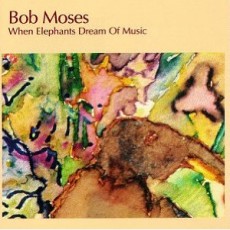
Daily Dose Of Jazz…
Bob Moses: The Drummer Who Helped Invent Jazz Fusion
Rakalam Bob Moses was born on January 28, 1948, in New York City, arriving just as bebop was transforming into something even more adventurous. He studied drums throughout his childhood, absorbing the rhythmic complexity of modern jazz, and by the time he was a teenager in 1964, he was already playing professionally with the wildly creative multi-instrumentalist Rahsaan Roland Kirk—a baptism by fire that would shape his fearless approach to rhythm.
Pioneering Fusion Before It Had a Name
In 1966, Moses and guitarist Larry Coryell did something revolutionary: they formed the jazz-fusion group Free Spirits, blending jazz improvisation with rock energy and electric instruments at a time when most jazz purists considered such combinations heretical. This was two years before Miles Davis’ In a Silent Way, two years before Tony Williams Lifetime—Free Spirits were genuine pioneers, exploring territory that barely had a map.
The following year, 1967, Moses began a fruitful collaboration with vibraphonist Gary Burton, with whom he would record throughout the 1970s. Burton’s innovative approach to the vibraphone and his openness to musical experimentation made him the perfect partner for Moses’ exploratory drumming.
Finding His Voice as a Leader
Moses released his first album as a leader, Bittersuite, in 1975—a deeply personal statement that showcased his compositional abilities alongside his drumming. This was followed by Devotion in 1979, further establishing him as not just a sideman but a creative force with his own vision.
During this fertile period, he was also a member of Compost, an adventurous ensemble featuring saxophonist Harold Vick, percussionist Jumma Santos, bassist Jack Gregg, and the great drummer Jack DeJohnette. The group explored Afro-Cuban rhythms, modal jazz, and free improvisation—a melting pot that reflected Moses’ wide-ranging musical interests.
A Collaborator’s Collaborator
Moses became the drummer of choice for some of the most forward-thinking musicians of the era. He worked extensively with saxophonist Dave Liebman’s Open Sky ensemble, guitarist Pat Metheny (during his early, more experimental period), pianist Hal Galper, keyboardist Gil Goldstein, bassist Steve Swallow, Swiss bandleader George Gruntz, and the brilliant guitarist Emily Remler—each collaboration revealing different facets of his musical personality.
What united all these partnerships was Moses’ ability to provide both solid grounding and adventurous color, to swing hard when needed but also to explore texture, space, and unconventional rhythmic structures.
Prolific Leadership
From the 1980s into the new millennium, Moses continued recording prolifically as a leader for Gramavision, Amulet, Navarre, Sunny Side, and Jazzwerkstat record labels. Many of these releases received significant critical acclaim, recognized for their compositional depth, rhythmic sophistication, and willingness to take chances.
Unlike some drummers who lead albums that are merely showcases for technique, Moses’ recordings are genuine compositions—thoughtfully constructed pieces that happen to feature exceptional drumming rather than drum solos searching for a musical context.
Still Creating, Still Teaching
Today, Moses continues performing alongside bassist John Lockwood, bassist Don Pate, and keyboardist John Medeski with the noted spiritual jazz guitarist Tisziji Muñoz—explorations that connect to jazz’s mystical, transcendent possibilities.
He also teaches at the prestigious New England Conservatory, where he passes on decades of hard-won knowledge to the next generation of drummers and improvisers. For Moses, teaching isn’t just about technique—it’s about opening young musicians’ ears to possibilities they haven’t yet imagined.
A Legacy of Fearless Exploration
From teenage prodigy playing with Roland Kirk to jazz-fusion pioneer with Free Spirits, from sensitive accompanist with Gary Burton to visionary bandleader with dozens of albums under his own name, Bob Moses has spent over six decades refusing to be categorized, refusing to play it safe, and refusing to believe that drums are merely a timekeeper.
He’s proven that the drum kit can be a melodic instrument, a textural palette, a conversational partner, and a compositional tool—all while never losing sight of the fundamental groove that makes jazz music move and breathe.
That’s not just a career—that’s a lifetime of pushing boundaries and expanding what’s possible behind the kit.
More Posts: drums
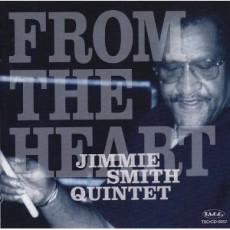
Daily Dose Of Jazz…
Jimmie Smith: The Drummer Who Played with Everyone Who Mattered
James Howard Smith was born on January 27, 1938, in Newark, New Jersey, and from the beginning, he was serious about the drums. From 1951 to 1954, while still a teenager, he studied at the Al Germansky School for Drummers—a specialized institution that emphasized both technique and musicality. His dedication paid off with acceptance to the legendary Juilliard School in 1959, where he refined his classical training and expanded his musical vocabulary.
But Smith wasn’t destined for the orchestral world, jazz was calling, and New York City was waiting.
The New York Years: A Who’s Who Education
Smith began his professional career in New York around 1959, and what followed was an apprenticeship that reads like a masterclass in post-bop jazz. Throughout the 1960s, he worked with saxophonist Jimmy Forrest, organist Larry Young, the groundbreaking vocal trio Lambert, Hendricks & Ross, saxophonist Pony Poindexter, blues shouter Jimmy Witherspoon, pianist Gildo Mahones, organists Jimmy McGriff and Groove Holmes—each gig teaching him something new about swing, time, and the art of musical conversation.
His longest and perhaps most formative association came with the incomparable pianist Erroll Garner, with whom he played until 1975. Working with Garner—whose rhythmically complex, orchestral approach to the piano demanded both flexibility and rock-solid time—was like earning a PhD in musical sensitivity.
Heading West
In 1975, Smith relocated to California, where his career took on new dimensions. The West Coast jazz scene of the 1970s through the 1990s was vibrant and diverse, and Smith found himself performing and recording with an almost absurd roster of talent: saxophonist Sonny Criss, vocalist Bill Henderson, singer Ernestine Anderson, pianist Phineas Newborn, guitarists Barney Kessel and Herb Ellis, and saxophonist Al Cohn—just to name a few.
Each collaboration revealed Smith’s remarkable adaptability. He could swing hard with horn players, provide delicate brush work behind vocalists, and drive a guitar trio with just the right combination of propulsion and restraint.
In 1993, he toured Japan with organist Jimmy Smith, no relation, and guitarist Kenny Burrell, a dream trio that brought classic soul-jazz to enthusiastic audiences abroad.
One Legendary Night in Montreux
One of drummer Jimmie Smith’s most celebrated performances took place at the 1977 Montreux International Jazz Festival, where he shared the stage with an all-star lineup that still seems impossible: saxophonist Benny Carter, trumpeter Miles Davis, vibraphonist Milt Jackson, trumpeter Dizzy Gillespie, and pianist Count Basie.
Imagine being the drummer holding down the rhythm section for that constellation of legends—multiple generations of jazz royalty, each with their own distinct style and expectations. Smith rose to the occasion, proving he belonged in that rarefied company.
As a Leader
While Smith spent most of his career as the ultimate supporting player, he did step forward as a leader on select occasions. He recorded From the Heart for the Tokyo Sound City label and the superb Rockin’ in Rhythm with bassist Ray Brown and pianist Hank Jones for Concord Records—a trio session that showcased his musical intelligence and his ability to create space for his equally accomplished bandmates.
The Drummer’s Drummer
Jimmie Smith represents a particular kind of jazz musician that’s increasingly rare: the complete professional who could walk into any musical situation, read the room or the chart, and deliver exactly what was needed. No ego trips, no showboating—just deep listening, impeccable time, and the kind of musical generosity that makes everyone else sound better.
From Newark to Juilliard, from Greenwich Village clubs to Montreux’s grand stages, from New York to California and across the Pacific to Japan, Jimmie Smith spent his career doing what he loved most: sitting behind the drums and making great music with great musicians.
And really, what better legacy could a jazz musician ask for than to be known as someone every bandleader wanted on the gig, someone who made the music swing, and someone who understood that sometimes the greatest artistry lies not in the spotlight, but in making the spotlight shine brighter on everyone else?
That’s Jimmie Smith—a drummer’s drummer, a musician’s musician, and one of the unsung heroes who helped keep the jazz tradition alive and swinging for over four decades.
More Posts: drums
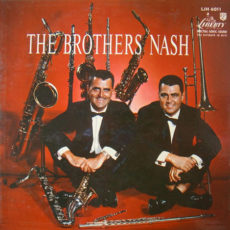
Daily Dose Of Jazz…
Dick Nash: The Trombone Voice Behind Hollywood’s Golden AgeRichard Taylor Nash was born on January 26, 1928, in Boston, Massachusetts, and discovered brass instruments at age ten but it was tragedy that would deepen his commitment to music. After his parents’ death, while living in boarding school, the young Nash threw himself into trumpet and bugle, finding solace and purpose in the discipline and beauty of making music. What began as comfort became calling.
From Big Bands to the Studio
Nash’s first professional work came in 1947 with bands like Tex Beneke’s popular ensemble, a solid apprenticeship with a name bandleader. After serving in the Army, where he continued playing, he joined Billy May’s swinging outfit, gaining experience in the competitive world of post-war big bands.
But Nash’s real destiny was waiting in Los Angeles, where he would become one of the most sought-after studio musicians in the entertainment capital of the world. When producers needed a trombonist who could nail it on the first take, who could read anything, who could deliver both technical perfection and emotional depth, they called Dick Nash.
Mancini’s Secret Weapon
Nash became the favorite trombonist of composer and conductor Henry Mancini, and if you know Mancini’s work, you understand the honor that represents. Mancini wrote sophisticated, jazz-inflected scores that required musicians who could swing, play with taste, and capture specific moods with just a few perfectly placed notes.
Nash was the featured trombone soloist on several iconic Mancini soundtracks: the cool, late-night jazz of Mr. Lucky and Peter Gunn, the exotic adventure of Hatari!, the wistful romance of Breakfast at Tiffany’s, and the achingly beautiful melancholy of The Days of Wine and Roses.
If you’ve ever heard that gorgeous trombone solo floating over “Moon River” or punctuating the Peter Gunn theme, that’s Dick Nash—his sound became part of America’s collective musical memory, even if most listeners never knew his name.
Equally at Home in Jazz
But Nash wasn’t just a studio musician grinding out commercial work. By 1959, he was playing bass trombone on saxophonist Art Pepper’s brilliant Art Pepper + Eleven: Modern Jazz Classics session—a challenging, ambitious album that showcased Nash’s ability to function in pure jazz settings alongside one of the West Coast’s most intense improvisers.
A Who’s Who of Collaborations
Over the course of his career, Nash remained predominantly associated with swing and big band genres, but his résumé reads like a directory of 20th-century popular music greatness. Besides working on countless film scores, the trombonist performed and recorded with Quincy Jones, Ella Fitzgerald, Harry James, Count Basie, Oscar Peterson, Louie Bellson, Nat King Cole, Mel Tormé, June Christy, Stan Kenton, Les Brown, Don Ellis, Jimmy Witherspoon, Frank Sinatra, Lena Horne, Peggy Lee, Erroll Garner, Anita O’Day, Teresa Brewer, Randy Crawford, The Manhattan Transfer, Sonny Criss… and the list goes on.
The Ultimate Professional
Think about that range: from Basie’s driving swing to Sinatra’s intimate balladry, from Kenton’s progressive big band experiments to Ellis’ avant-garde explorations, from pop sessions to pure jazz dates. Nash could do it all, and do it with the kind of musicality that elevated everything he touched.
The Invisible Artist
Dick Nash represents a particular kind of musical excellence that often goes unrecognized: the studio musician who serves the music rather than their own ego, who makes everyone around them sound better, whose artistry is heard by millions but whose name remains known primarily to fellow musicians and serious fans.
He didn’t need the spotlight. He was the light—illuminating countless recordings, soundtracks, and live performances with his warm tone, impeccable technique, and deep musicality.
From a grieving boy in boarding school finding comfort in a bugle to becoming Henry Mancini’s go-to trombonist and one of the most recorded musicians in American history, Dick Nash’s journey reminds us that sometimes the greatest artists are the ones who help others shine.
And if you’ve ever been moved by a film score, charmed by a classic pop recording, or thrilled by a big band arrangement, there’s a good chance Dick Nash’s trombone was part of what made you feel that way—even if you never knew it.
More Posts: trombone
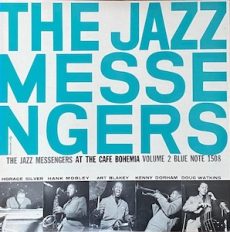
Requisites
The Jazz Messengers at The Café Bohemia, Volume 2 | By Eddie Carter
Submitted for your approval this morning, we’re returning to the little jazz club at 15 Barrow Street to see The Jazz Messengers at The Café Bohemia, Volume 2 (Blue Note BLP 1508). Returning to the stage are Kenny Dorham on trumpet, Hank Mobley on tenor saxophone, Horace Silver on piano, Doug Watkins on bass, and Art Blakey on drums. The copy I own is the 1978 King Record Company Japanese mono reissue, sharing the original catalog number. Just as he did to start the evening, Art once again greeted the audience, encouraging any latecomers to settle in and enjoy themselves as The Jazz Messengers got things rolling.
The opening selection, Sporting Crowd, is a lively Hank Mobley original that’s off to the races with Blakey and the rhythm section’s rocking introduction, leading into the ensemble’s swinging, cohesive theme. Kenny kicks off his opening statement with a brass bite in a fiery performance that displays his impeccable chops. Hank launches into a scintillating solo that builds intensity before passing the spotlight to Horace, who impresses in an energetic interpretation. Art has the last word and delivers an electrifying display before the ensemble returns to take the song out.
Art introduces the 1944 jazz standard, Like Someone In Love by Jimmy Van Heusen and Johnny Burke. It first appeared in the film “Belle of the Yukon,” and Blakey would re-record it in 1960, but it remained shelved until 1967, when it was released as the title track of The Jazz Messengers album. The ensemble lovingly honors this beloved tune with a relaxing melody. Kenny retakes the lead, delivering a fine example of delicacy and sensitivity. Hank brings the second solo off in charming style, then Horace wraps up with an easygoing reading before the melody’s reprise and warm applause from the audience.
Art turns the microphone over to Kenny Dorham, who gets the spotlight to himself when he introduces Yesterdays, the beautiful 1933 ballad by Jerome Kern and Otto Harbach. It first appeared in the Broadway musical, “Roberta,” that year and was featured again in the 1935 film. Over the past ninety years, it’s become a beloved jazz standard, cherished and reinterpreted by countless artists. The trumpeter’s performance is a model of thoughtful sensitivity as he delivers a melody of serene beauty. As the song’s only soloist, his interpretation shines with gentle sensitivity, each phrase rendered with graceful elegance and culminating in a thoughtful, reflective conclusion.
Avila and Tequila by Hank Mobley injects renewed energy into the quintet with an uptempo beat, with Art’s Latin-inspired, lively, lengthy percussive introduction leading into the vigorous melody. Hank launches into a searing opening statement that creates a lot of heat. Kenny follows him closely, keeping the fires burning in a robust performance. Horace continues cooking hard with a brisk interpretation, inspiring Doug and Art to propel the beat to a vibrant, swinging peak. The drummer rounds out the solos with a brisk workout, joined by Mobley, Silver, and Watkins, before the ensemble comes together for the swift reprise and enthusiastic ovation.
The album closes with I Waited For You, a 1946 ballad by Dizzy Gillespie and Gil Fuller that hasn’t been over-recorded. Hank opens with a delicately pretty introduction, leading into Kenny’s heartwarming melody. The trumpeter continues embracing a touch of refined artistry in the opening statement. Hank follows, gently navigating the song’s nostalgic beauty in the following interpretation. Horace provides the song’s exclamation point in a beautifully crafted finale, exquisitely conceived and presented, leading into the quintet’s breathtaking climax and a slow fadeout as the group reprises their theme.
Alfred Lion produced The Jazz Messengers at Café Bohemia, Volume 2, along with its companion, while Rudy Van Gelder took care of the recording during the group’s live performance. The King Japanese mono reissue offers fantastic sound quality—clean and lively. It’s truly a delightful listening experience from The Jazz Messengers, showcasing some of the finest in Hard-Bop, just as its companion does. If you’re new to jazz or a longtime fan of the group, I wholeheartedly recommend adding The Jazz Messengers at Café Bohemia, Volume 2 to your library. It’san album that promises a rich and enjoyable musical journey.
~ Like Someone In Love, Yesterdays – Source: JazzStandards.com © 2026 by Edward Thomas Carter
More Posts: choice,classic,collectible,collector,drums,history,instrumental,jazz,music


